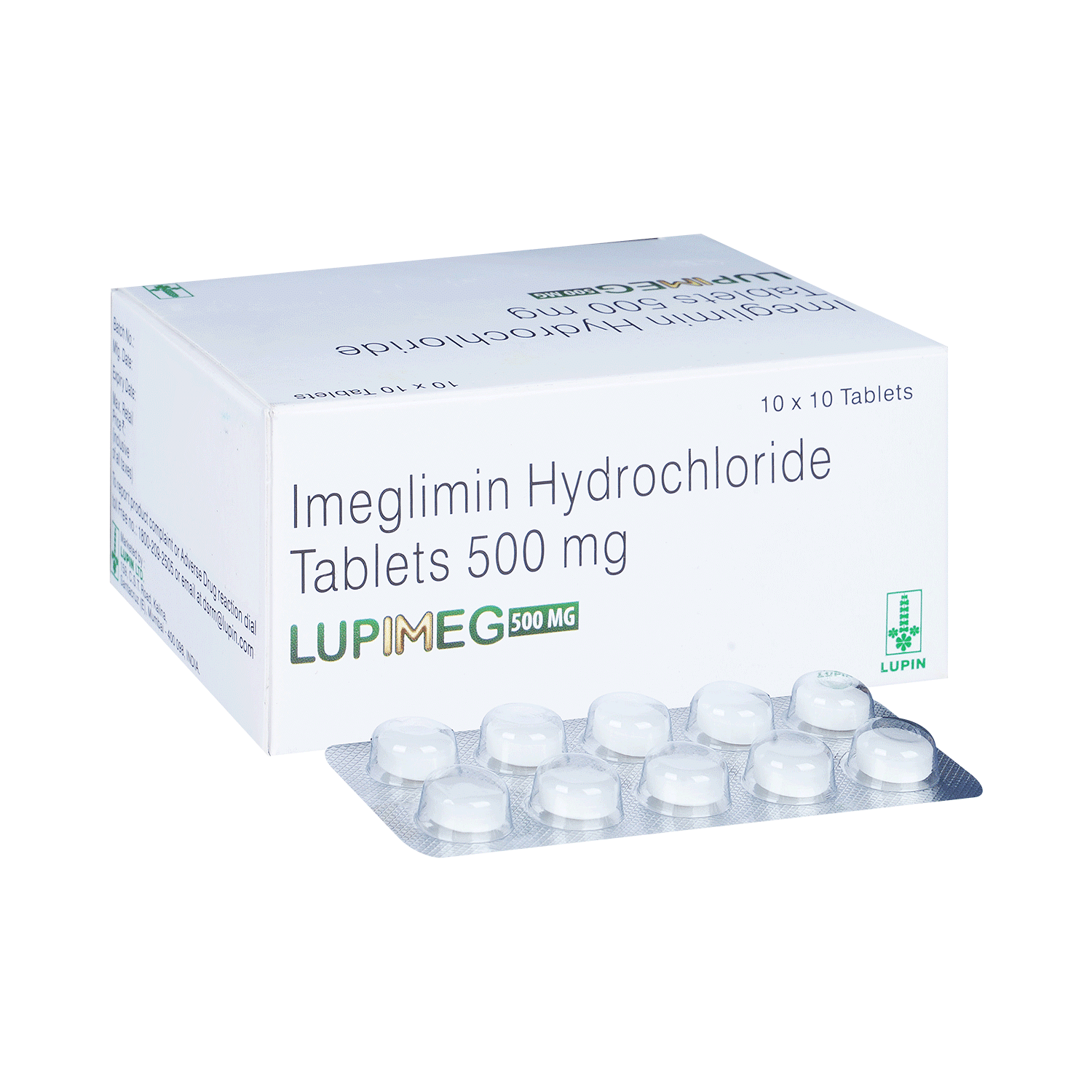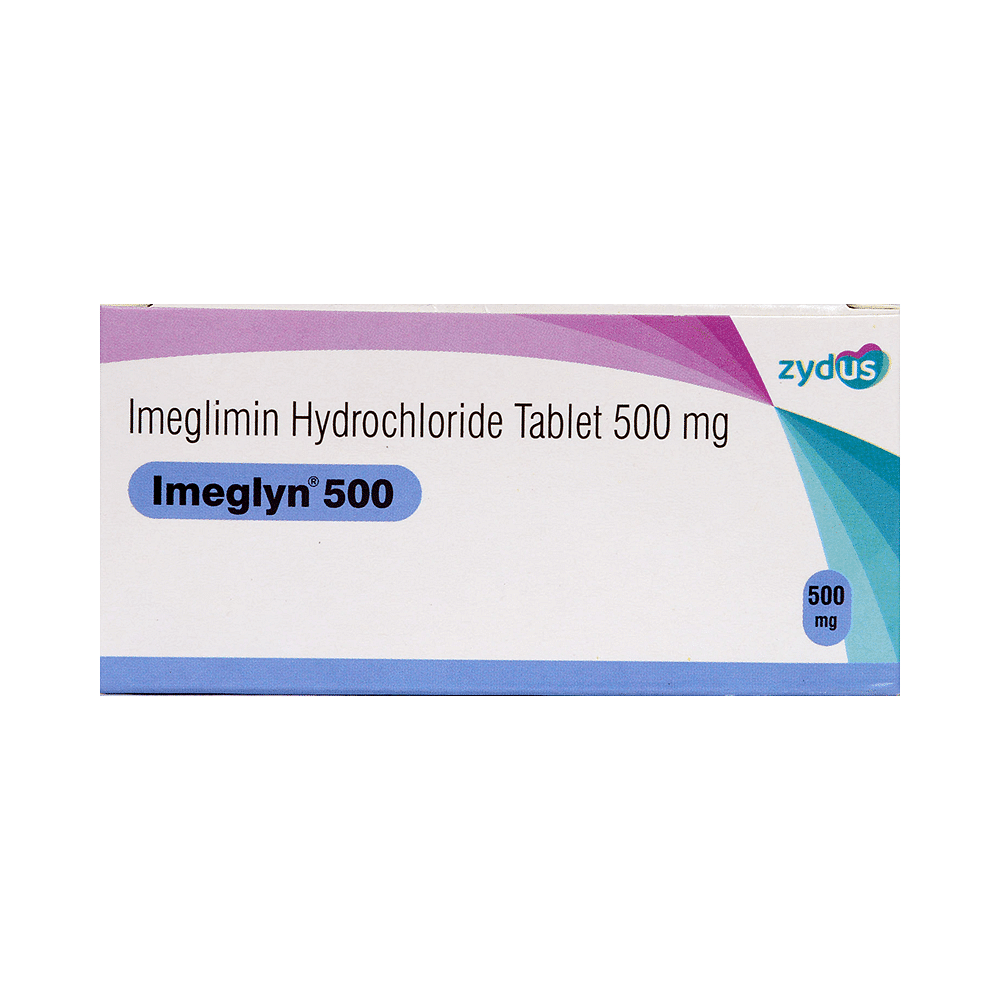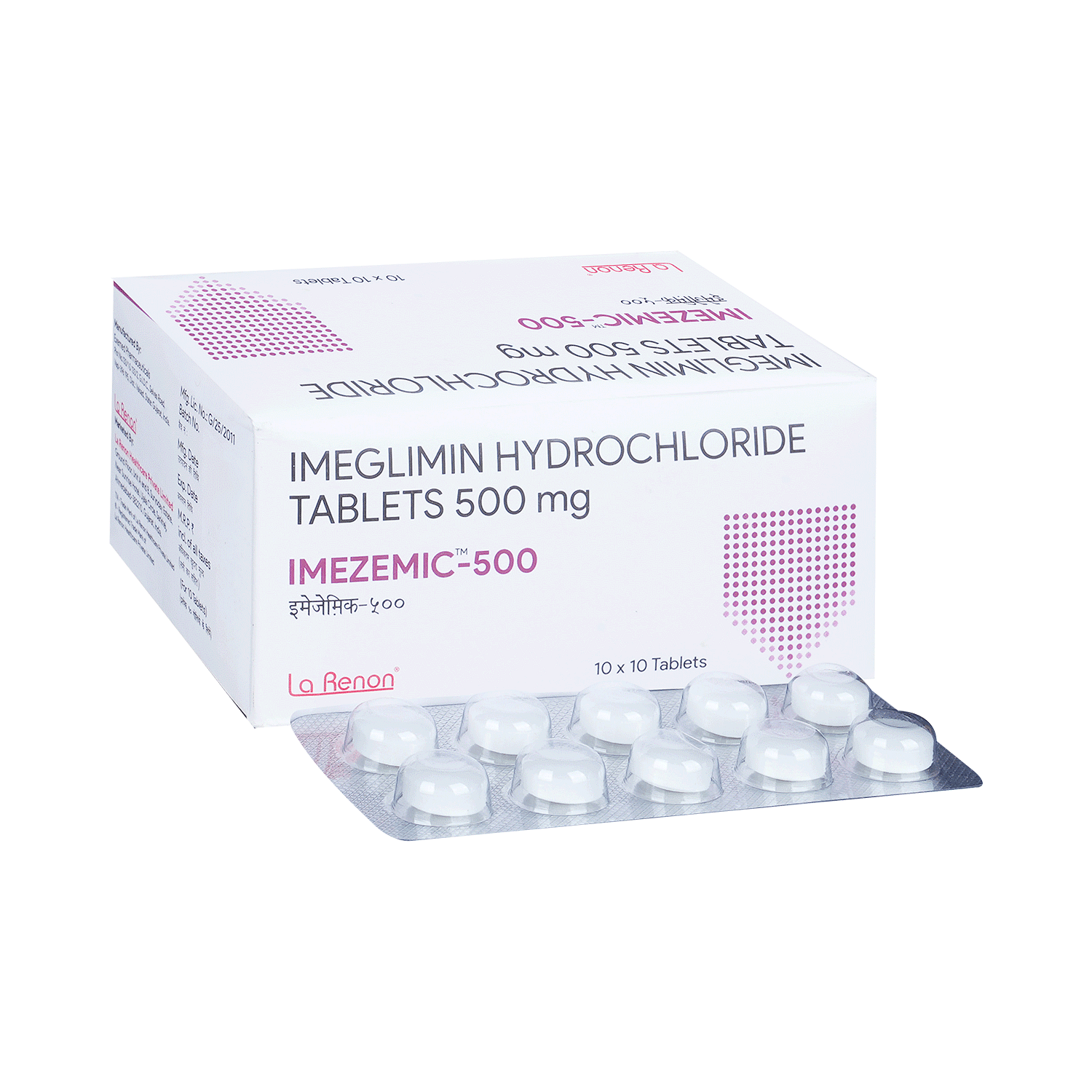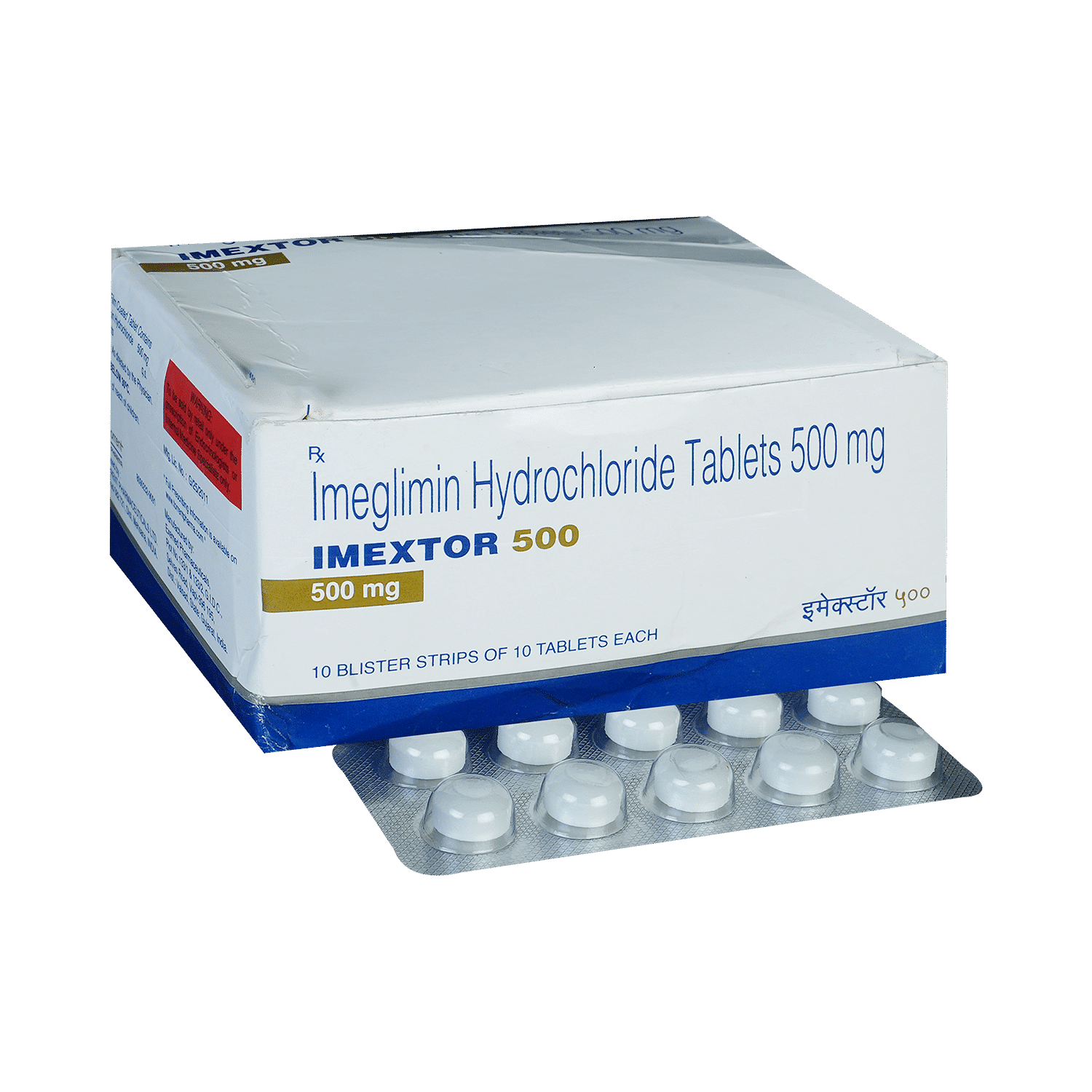
Imeg CKD 500mg Tablet
Manufacturer
La Renon Healthcare Pvt Ltd
Salt Composition
Imeglimin (500mg)
Key Information
Short Description
Imeg CKD 500mg Tablet is a medicine used to treat type 2 diabetes mellitus, controlling blood sugar levels and preventing complications like kidney damage and blindness.
Dosage Form
Tablet
Introduction
Imeg CKD 500mg Tablet is a medicine used to treat type 2 diabetes mellitus. It is used together with a healthy diet and regular exercise to control blood sugar levels. This helps to prevent serious complications of diabetes like kidney damage and blindness.
Directions for Use
Take this medicine in the dose and duration as advised by your doctor.Swallow it as a whole.Do not chew, crush or break it.It may be taken with or without food, but it is better to take it at a fixed time
How it works
Works by stimulating insulin secretion in a glucose-dependent manner.Helps to lower blood sugar levels
Quick Tips
Hypoglycemia (low blood sugar level) may occur when taken along with other antidiabetic medicines Monitor your blood sugar regularly while taking this medicine Inform your doctor immediately if you experience rapid or deep breathing, muscle pain, fatigue, and drowsiness Lifestyle changes like low sugar diet, exercising, losing weight, not smoking, and cutting down on the amount of alcohol you normally drink may help this medication work better
Related Medicines

Lupimeg 500mg Tablet

Imeglyn 500 Tablet

Imezemic-500 Tablet

Imeclass 500mg Tablet

Zuglimin 500mg Tablet

Imextor 500 Tablet

Inzoboon 500mg Tablet
Frequently asked questions
What is the recommended dosage of Imeg CKD 500mg Tablet?
The usual adult dosage of imeglimin hydrochloride is 1000 mg, administered orally twice daily in the morning and evening.
Is Imeg CKD 500mg Tablet safe for patients with kidney disease?
Patients with kidney disease may experience a delay in the elimination of Imeg CKD 500mg Tablet from the body due to improper kidney function. It is essential to inform your doctor if you have kidney disease before starting treatment with Imeg CKD 500mg Tablet.
Can Imeg CKD 500mg Tablet cause dizziness?
Yes, Imeg CKD 500mg Tablet can cause dizziness as a side effect. If you experience dizziness, sit or lie down until the symptoms pass. Always carry some sugary food or fruit juice with you in case you experience dizziness while traveling.
How can I relieve constipation during treatment with Imeg CKD 500mg Tablet?
To relieve constipation, include fiber in your diet (fruits and vegetables), drink 8-10 glasses of fluids a day, and keep active. A stool softener (with a doctor's prescription) once or twice a day may help prevent constipation. If you do not have a bowel movement for 2-3 days, consult your doctor.
Can Imeg CKD 500mg Tablet be used to treat type 1 diabetes?
No, Imeg CKD 500mg Tablet is not suitable for treating type 1 diabetes.
What foods should I avoid while taking Imeg CKD 500mg Tablet?
It is recommended to avoid foods high in saturated and trans fats, and instead consume fats from fish and nuts. Control your carbohydrate intake as it directly affects your blood sugar levels.
Is Imeg CKD 500mg Tablet safe to use?
Yes, Imeg CKD 500mg Tablet is safe when used as directed by your doctor. However, it may cause some side effects. For best results, it should be used in the correct dose and at the same time each day.
Can I stop taking Imeg CKD 500mg Tablet without consulting my doctor?
No, do not stop taking Imeg CKD 500mg Tablet without talking to your doctor first. Sudden discontinuation of this medicine may worsen your diabetes. Inform your doctor if the symptoms bother you or no considerable improvement is seen in your condition. The doctor may suggest alternative medications that could be more effective in treating your diabetes.
Can people with diabetes consume proteins?
Yes, people with diabetes should include proteins along with other essential nutrients in their daily diet. Proteins are one of the major energy providers among all essential nutrients. However, it is essential to consult your doctor or a registered dietitian to determine the appropriate protein intake for your specific condition.
Are artificial sweeteners suitable for people with diabetes?
No, artificial sweeteners are not recommended for people with diabetes. They are composed of chemicals that can cause mild to severe side effects. It is better to limit or avoid their use as much as possible.
Can diabetes cause kidney failure?
Yes, uncontrolled diabetes can cause kidney failure. In the long run, diabetes can affect the kidneys leading to a condition called diabetic nephropathy. This condition is a major cause of kidney failure in patients with diabetes. The best way to prevent damage to kidneys is by keeping diabetes in check, making dietary changes, monitoring sugar levels regularly, getting routine blood tests done, and taking prescribed medications on time.
Can diabetes be cured?
Diabetes is a condition that causes changes in your blood glucose levels, which if left uncontrolled, can lead to serious health complications affecting the heart, brain, kidneys, and eyes. However, with simple lifestyle changes, diet, and medications, one can manage their condition and lead a healthy life. It is essential to consult a doctor or a registered dietitian to develop a personalized treatment plan.


